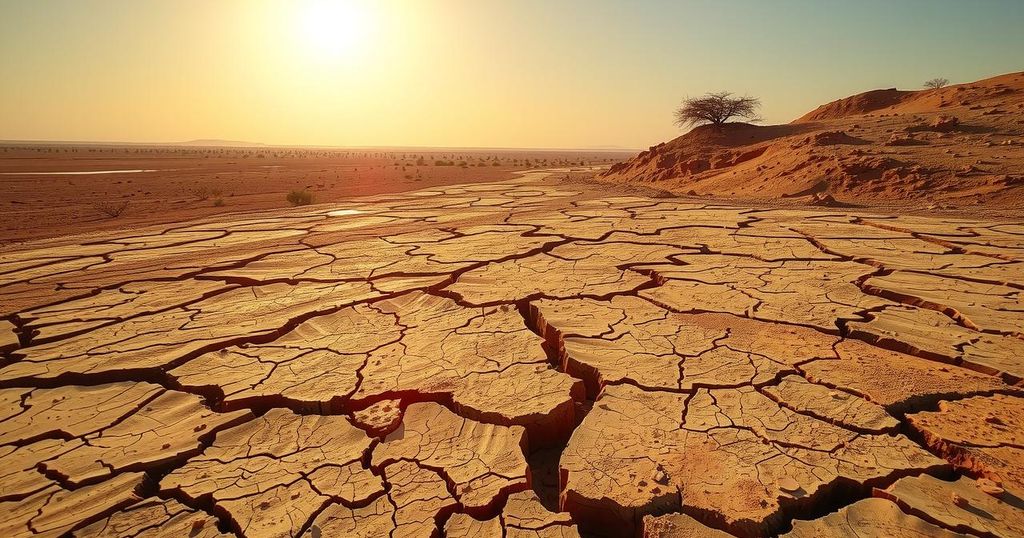A recent study reveals that climate change has increased the likelihood of heatwaves in South Sudan, affecting women and girls disproportionately. The country, facing ongoing insecurity and instability, is ill-prepared for such environmental crises. Current temperatures have reached 40 degrees Celsius, causing schools to close and prompting warning measures from the government as the heatwave may become a regular occurrence.
A recent study suggests that man-made climate change has significantly increased the likelihood of the heatwave currently affecting South Sudan, noting that soaring temperatures disproportionately impact women and girls. This impoverished nation has struggled with instability since its independence in 2011, rendering it vulnerable to worsening environmental disasters.
The current heatwave coincides with ongoing political turmoil in South Sudan, raising concerns about the fragility of the 2018 peace agreement that ended a prolonged civil war. Reports indicate that February temperatures have soared to 40 degrees Celsius (104 Fahrenheit) in various regions, prompting governmental action such as the closure of schools in the capital, Juba, where many students reportedly collapsed daily due to the heat.
According to the study conducted by the World Weather Attribution network, climate change has exacerbated the extreme heat by at least 2 degrees Celsius and made similar events ten times more likely. Kiswendsida Guigma, a climate scientist involved in the research, stated, “Climate change is clearly making life even more difficult in South Sudan, a country already facing economic challenges and periods of instability.”
The living conditions further complicate adherence to government advisories, as many South Sudanese work outdoors, and a significant number lack access to air conditioning in their tin-roofed homes. With only 8.4 percent of the population having electricity as of 2022, access to basic needs remains a challenge. Women and girls are particularly hard hit, managing daily tasks like water collection and cooking in extreme conditions. Elizabeth Lodou Lochapio from Kapoeta shared that women must venture out for livelihoods even amidst the heat.
The rising temperatures have made heatwaves that exceed 40 degrees the new normal in South Sudan, with researcher Sarah Kew emphasizing that such events, once infrequent, now occur biannually. The ongoing heat is projected to persist throughout March, further exacerbating challenges for the people of South Sudan.
In summary, the study highlights how climate change significantly impacts South Sudan, especially regarding the extreme heatwave that has become increasingly severe and frequent. The challenges faced by the nation are compounded by political instability and lack of basic resources, disproportionately affecting women and girls. The research underscores the urgent need for adaptive measures to address the implications of climate change in the region.
Original Source: www.france24.com






